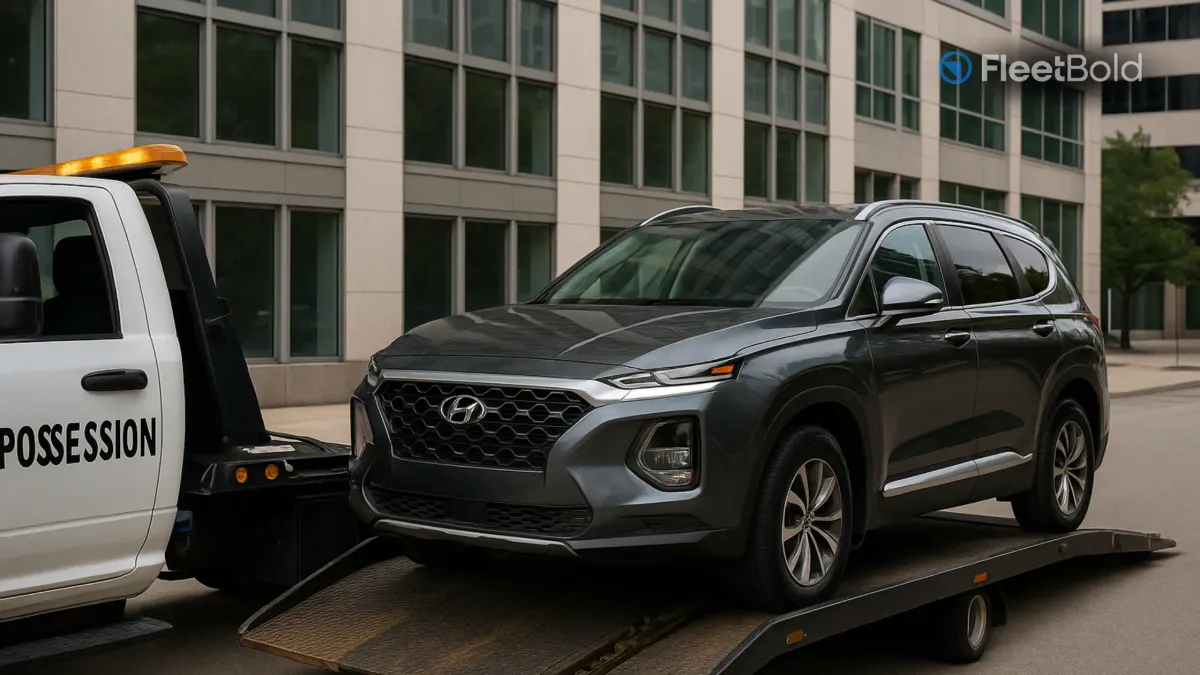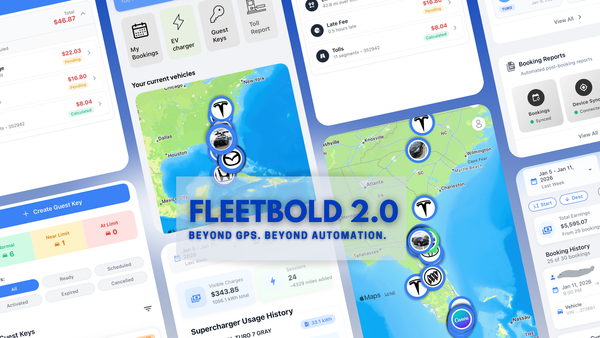Repossessed for Renting on Turo: The Clause Every Host Forgets to Read
She wasn’t behind on her car payments. Not even a day late. But while her Turo guest was out having lunch, the car was suddenly repossessed. This isn’t fiction it’s a growing risk for hosts who skip the fine print. Here’s what happened, and how to protect your fleet.

The Shocking Reality: A Car Repossessed in the Middle of a Trip
In a case first reported by Torque News, a guest rented a
Hyundai Palisade through Turo. Everything was going smoothly until the vehicle was suddenly towed during the trip.
The reason?
Not missed payments.
Not a stolen car.
The vehicle was repossessed because it was being rented in violation of the host’s financing agreement.
What Caused the Repossession?
The host had financed the car under a personal-use auto loan, which typically includes a clause like:
“This vehicle may not be used for commercial purposes, including but not limited to ride-sharing or car-sharing platforms.”
By listing the car on Turo, the host violated that clause triggering legal repossession, even though all payments were up to date.
This Isn’t an Isolated Incident
Forums like Reddit, Facebook groups, and community posts reveal multiple similar stories:
- 🔍 Lenders are actively scanning Turo and other platforms for license plates tied to financed vehicles.
- 🚛 Repo agents are dispatched even when owners have never missed a payment.
- 📝 Some banks now include “car-sharing detection” tools in their risk systems.
What Turo Says About It
Turo’s terms are clear:
It’s your responsibility to ensure that your use of the vehicle complies with all agreements, including financing or leasing contracts.
In this case, Turo refunded the renter and reportedly removed the host from the platform a major loss in both vehicle and potential income.
How to Know If You’re at Risk
Here are common phrases found in finance or lease agreements that signal Turo is not allowed:
- ❌ “Personal use only”
- ❌ “No commercial or business use”
- ❌ “Vehicle may not be subleased or rented”
- ❌ “Prohibited from use on ride-sharing or car-sharing platforms”
Even if your lender hasn’t explicitly said no assume it’s a no until you confirm otherwise in writing.
What Hosts Should Do Before Listing a Car
✅ Call your lender and ask clearly: Can I list this vehicle on Turo or other rental platforms?
✅ Get the answer in writing (email or contract update)
✅ If the answer is no don’t risk it
✅ Consider using vehicles you own outright, or switching to a commercial auto lender
What Happens if Your Car Is Repossessed While on Turo?
- Your guest may be stranded
- You will likely receive negative ratings or be removed from the platform
- Your car may be gone with no reimbursement
- Your credit can be impacted, even if you were paying on time
- Your insurance may not cover damages during the repossession
Why This Matters More in 2025 Than Ever
As Turo grows, lenders are tightening restrictions.
They’ve learned to monitor the platform, and some now partner with repo agencies that do regular sweeps.
📉 This means the margin for error is shrinking.
📈 And hosts need to operate more professionally or risk losing it all.
FleetBold’s Take: Know Your Fleet, Know Your Contracts
At FleetBold, we work with hundreds of hosts managing small and large fleets. One of the most common (and dangerous) assumptions is:
“If I’m paying my car note on time, I can do whatever I want with it.”
That’s false.
🚫 Financing ≠ Ownership Freedom
✅ Understanding your contract = Protection
Conclusion: Read the Fine Print Before You Lose Everything
Before you list your car on Turo, ask yourself:
- Do I fully own this car?
- Did I read the financing contract?
- Did I get permission to rent it out?
- Am I prepared for the risk of repossession?
Being a Turo host can be profitable, but only if you treat it like a real business and that means knowing what you’re legally allowed to do.
FAQs
Can I rent a financed car on Turo?
Only if your lender allows it. Most personal loans do not.
What happens if my financed car is repossessed during a trip?
You may lose the car, be banned from Turo, and face credit damage even with on-time payments.
Is this Turo’s responsibility?
No. Turo assumes hosts understand and comply with their vehicle agreements.
How can I safely scale my fleet?
Use fully owned vehicles or commercial lenders. Always verify contracts before listing.






